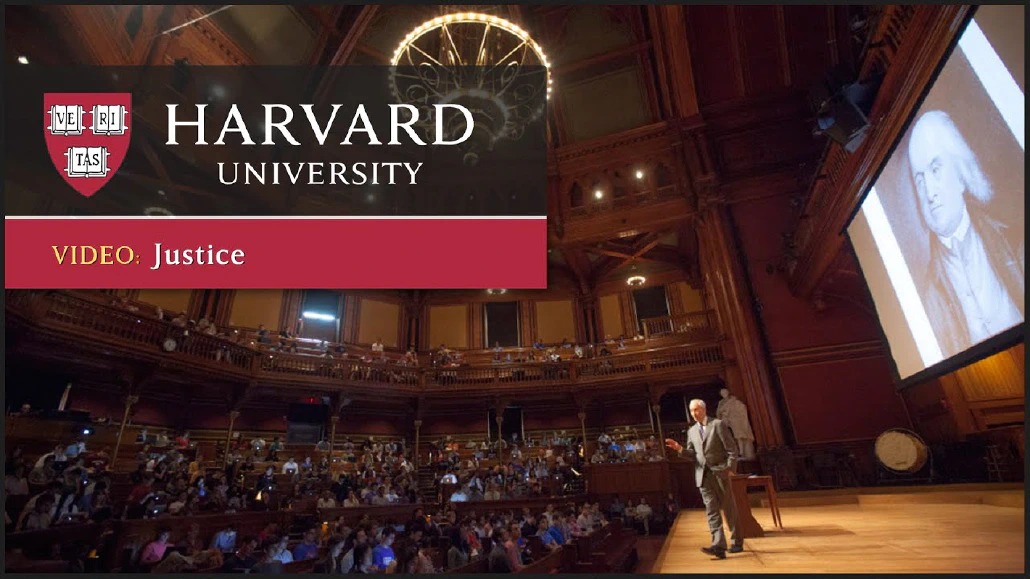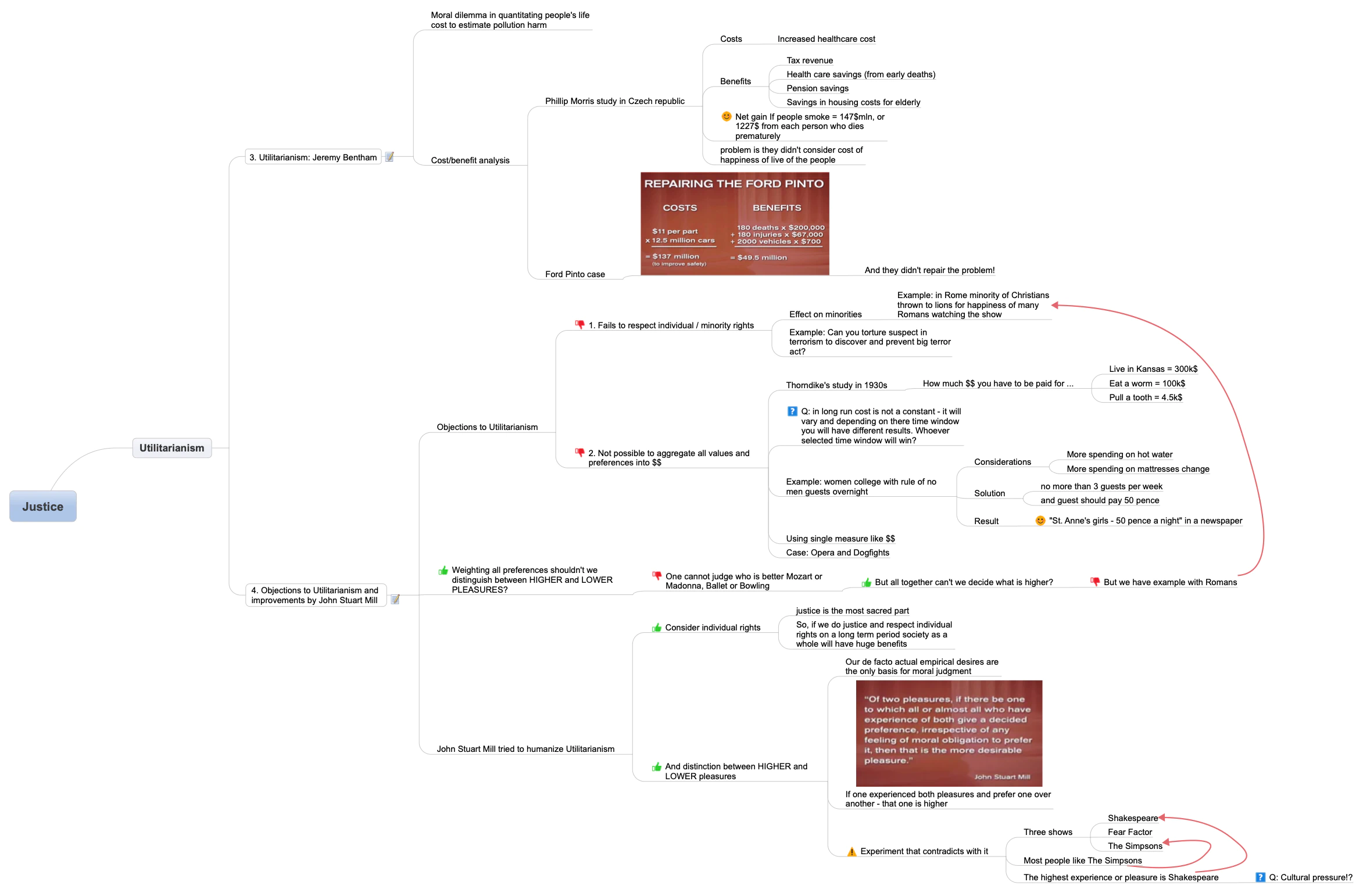Justice - 02 - Utilitarianism

I continue overviewing lectures about Justice and sharing my mind-maps. This time I’m sharing my mind-map from the lectures on Utilitarianism.

Summary of the lectures:
Lecture 3: Utilitarianism - Jeremy Bentham
In this lecture, the speaker discusses Jeremy Bentham’s version of utilitarianism, which aims to maximize general welfare by balancing pleasure and pain, and the application of utilitarianism in cost-benefit analysis used by companies and governments. The lecture explores the example of a Philip Morris study on smoking in the Czech Republic, which found a net public finance gain of $147 million. The lecturer also discusses the Ford Pinto case, where Ford did a cost-benefit analysis to determine whether it was worth putting a special shield to protect the fuel tank and prevent it from exploding. The lecture also focuses on the contentious issue of putting a dollar value on human life in cost-benefit analysis, and the objections to utilitarianism, particularly the effect on minority groups and the trade-offs of individual rights for the greater good. The example of the shipwreck boy who was eaten is used to illustrate these objections.
Lecture 4: Objections to Utilitarianism and improvements by John Stuart Mill
The lecture examines objections to Bentham’s version of utilitarianism, specifically the failure to respect individual rights and the difficulty of translating all values into utilitarian terms. The speaker provides a personal anecdote to illustrate this point. The lecture also discusses the idea of making qualitative distinctions about the worth of people’s pleasures and whether all pleasures are equal. In the second part of the lecture, the professor discusses the TV show “Fear Factor” and “The Simpsons,” asking the class to vote on their preference and whether they believe “The Simpsons” or Shakespeare represents the highest form of art. The professor challenges the class to think about whether they have been influenced by cultural conventions when voting for Shakespeare. The lecture also explores John Stuart Mill’s theory of higher pleasures, which suggests that a majority’s experience can determine a higher pleasure. Finally, the professor asks the class to imagine spending the rest of their lives with either “The Simpsons” or Shakespeare, and the majority chooses Shakespeare, which supports Mill’s theory.
Links: